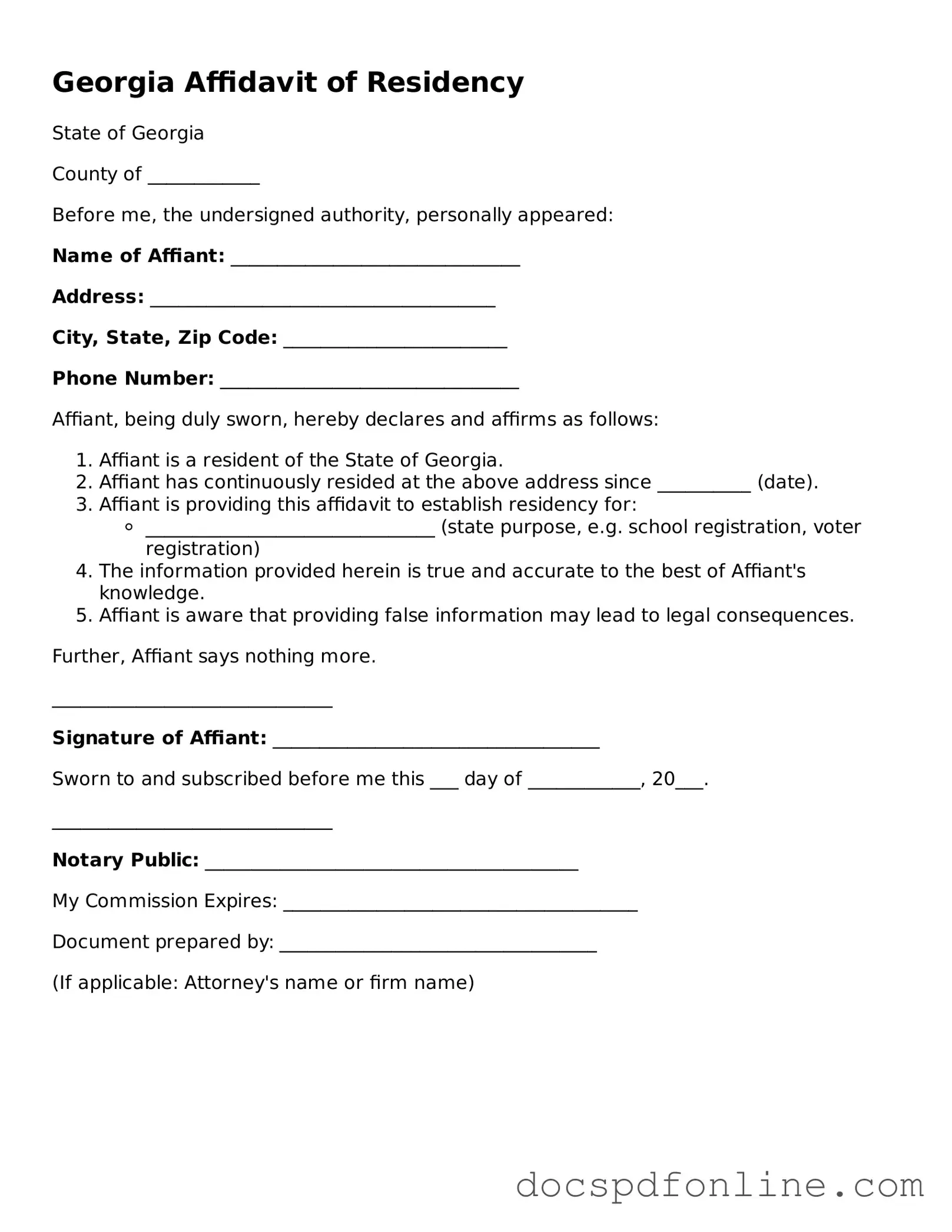Legal Affidavit of Residency Template for Georgia
The Georgia Affidavit of Residency form is a legal document used to verify an individual's residency status within the state of Georgia. This form is often required for various purposes, such as enrolling a child in school or obtaining certain public benefits. Understanding how to complete and submit this form can help ensure compliance with state regulations.
Launch Editor Now

Legal Affidavit of Residency Template for Georgia
Launch Editor Now
Save time — finish this form fast
Finish Affidavit of Residency online — edit, save, download made easy.
Launch Editor Now
or
↓ PDF File
